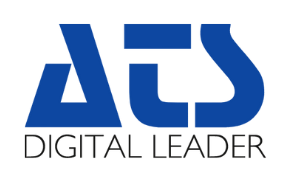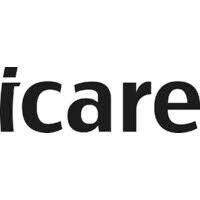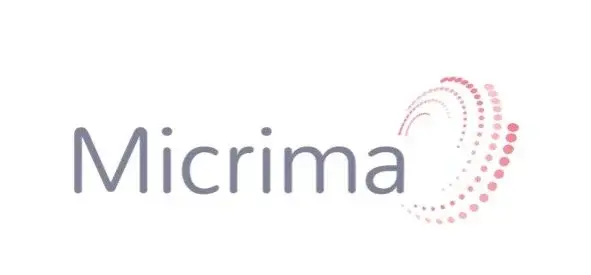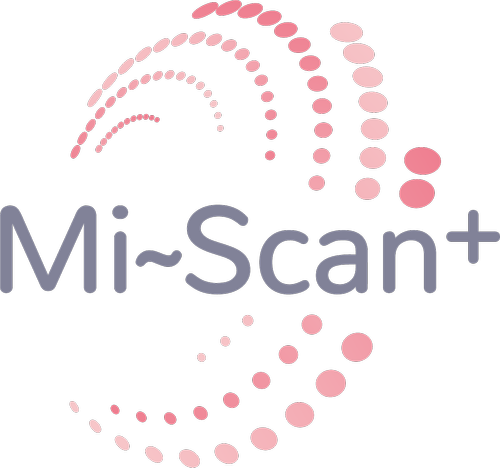Medical Devices Security
Medical Device Security
Expert cybersecurity services for medical devices, SaMD, and healthcare systems. Ensure patient safety, regulatory compliance, and robust security throughout your device lifecycle. From FDA premarket submissions to post-market surveillance.
13485 & 14971
100% Submission Success
MDR
Specialising in: Medical Cybersecurity | FDA 510(k) Support | IEC 62304 Compliance | Digital Therapeutics Security | Mobile Health App Testing | Mobile Device Security in Healthcare | AI/ML Medical Device Validation












Achieving EU MDR, HIPAA and FDA Compliance
We're here to support you with your medical device security journey through the complexities of compliance with standards like the EU MDR and FDA.
An assigned expert will help you navigate and understand the EU MDR, HIPAA and FDA standards and regulations. They will work closely with you, ensuring you understand the processes and how cybersecurity is embedded within them.
Not only do we advise and support, we can manage the processes for you with our qualified team, saving you time and effort.
Our Medical device security experts have put together a series of guides and support documents to help with achieving EU MDR and FDA compliance - you can check out our blog posts for support.
Who is this for?
Medical device startups, scale-ups, and enterprises looking to enter the space.
What does it cost?
Depending on the level of support you need, we can tailor a service to you.
Expert Support Areas
What You Get
Medical Device Meeting Compliance
Simplified Compliance Solutions
Remove the Headache of Security Compliance
Compliance is a critical aspect of medical device security. We understand that regulatory standards are stringent and the importance of adhering to regulations like HIPAA and FDA guidelines. We have simplified solutions to allow you to start, grow, and scale. Let us remove the headache of security compliance.
Simplified solutions for start, grow, and scale phases
Expert guidance on HIPAA and FDA guidelines
Stringent regulatory standards made manageable
End-to-end security compliance management
Compliance Dashboard
Medical Device Security
Regulatory Standards
Compliance Areas
Solutions for Every Growth Phase
Start
Foundation compliance setup for medical device startups and early-stage companies.
Grow
Enhanced compliance management for expanding medical device businesses.
Scale
Enterprise-level compliance solutions for large medical device organizations.
Medical Device Protection - First Steps to Becoming Secure
Our Process for Digital Health Organisations
Book a Call
Everyone is different, and medical devices are the same. It's important that we have some time to understand exactly what you need so that we can advise you accordingly.
Select your services
We offer ad hoc services for businesses that need a one-off engagement, for example, penetration testing. Or a managed service for any processes that you would like to have improved, whilst saving you time to grow your business
Grow your business
We have used security as a selling point for many medical device companies. Impress new customers when submitting RFPs, reduce your overheads, and move forward with clarity.
Partnership
Our business model is to grow with our customers; this means we focus on building a partnership based on trust. It is in our best interest to provide you with the best possible service at the best level of quality.
"The report they provided was incredibly thorough, with a detailed breakdown of the IEC-60601 requirements, clearly identifying the results of each section.
Their findings were instrumental in our FDA submission, giving us solid, trusted evidence to support our application.
Highly recommend this team for any medical device security needs."
CREST Penetration Testing
Medical Device Penetration Testing
Our medical device penetration testing service simulates real-world attacks to uncover critical vulnerabilities before they can be exploited. This is not just a technical exercise — it's about protecting patients, maintaining regulatory compliance, and safeguarding your reputation.
Our CREST-accredited testers use advanced ethical hacking techniques to evaluate your device's security posture across hardware, software, communication interfaces, mobile apps, and cloud services. We tailor each engagement to your product's architecture and risk profile, ensuring high-impact, relevant findings.
Book a CallCREST Testing Methodology
Hardware Security
Physical device and embedded system testing
Software Analysis
Firmware and application vulnerability assessment
Communication Interfaces
Network protocols and wireless communication
Mobile Apps
Companion applications and user interfaces
Cloud Services
Backend infrastructure and data storage
CREST Accredited Excellence
Why Penetration Testing Matters For Medical Devices
As connectivity within the healthcare ecosystem increases, medical devices are now prime targets for cyberattacks. A single vulnerability could allow unauthorised access, alter device function, or expose sensitive patient data. Penetration testing helps:
Identify
Vulnerabilities
Identify and mitigate exploitable weaknesses in software, firmware, and device communications.
Meet Regulatory
Standards
Meet regulatory expectations from the FDA, EU MDR, and other global standards, which increasingly call for evidence of security testing.
Patient Safety
Demonstrate due diligence in protecting patient safety and ensuring product resilience.
Technical
Documentation
Strengthen your technical file with a third-party report that supports CE marking or FDA submissions.
Our Approach
We conduct penetration testing at any stage — from development to post-market — and can focus on:
Each engagement concludes with a detailed report that outlines risks, evidence, and prioritised remediation advice — designed to support both technical teams and regulatory submissions.
Built For Compliance
We understand the unique requirements of medical device manufacturers. Our testing aligns with:
You get actionable insights and the supporting evidence needed to progress your product with confidence.
Services
Hazard analysis
Conducting a thorough hazard analysis is crucial for ensuring the safety and compliance of medical devices. Hazard analysis identifies potential risks and evaluates their impact on patient safety and device performance. At Periculo, we offer expert hazard analysis services to help you systematically identify, assess, and mitigate risks throughout the product lifecycle. Our approach includes detailed risk assessments, failure mode and effects analysis (FMEA), and the development of robust mitigation strategies. With Periculo’s support, you can ensure that your medical devices meet regulatory standards, enhance patient safety, and maintain high levels of performance and reliability.
Medical Device Penetration Testing
Protect your digital health organisation from cyber threats with our advanced penetration testing services. We simulate real-world cyber-attacks to uncover vulnerabilities, providing comprehensive assessments and actionable insights. Enhance your device security and safeguard patient data with our expert penetration testing solutions.
SBOM Management
Managing a Software Bill of Materials (SBOM) is critical for maintaining transparency and security in software development, especially in the healthcare sector. An SBOM provides a detailed inventory of all components within a software application, helping to identify vulnerabilities and ensure compliance with regulatory standards. At Periculo, we offer specialised SBOM management services, including creation, maintenance, and analysis of your SBOM. Our expertise helps you identify potential risks, ensure compliance with industry regulations, and enhance the overall security of your software products. With Periculo's support, you can achieve robust SBOM management, safeguarding your software from vulnerabilities and ensuring regulatory compliance.
FDA compliance
Ensuring compliance with the FDA regulations is essential for any organisation producing or distributing medical devices in the United States. FDA compliance requires strict adherence to standards for safety, efficacy, and quality. At Periculo, we provide expert support to help you navigate these regulations effectively. Our services include comprehensive risk assessments, compliance audits, detailed documentation support, and advanced cybersecurity measures tailored to the healthcare industry. With Periculo, you can confidently meet FDA requirements, ensuring your medical devices are safe, reliable, and ready for the market.
ISO13485 compliance
To meet ISO 13485 compliance, a business must set up a strong quality management system (QMS) designed for the medical device industry. This means having clear and detailed procedures in place for every stage of the product’s lifecycle, such as design, production, and activities after the product is on the market. It also requires careful management of risks, close monitoring of suppliers, and keeping track of materials and processes. Regular checks, thorough staff training, and a focus on ongoing improvement are essential. The business must also ensure its practices follow ISO standards and meet the rules of the countries where its devices will be sold, ensuring products are safe and high-quality.
Secure development lifecycle
Having a Secure Development Lifecycle is a critical part of your Digital Health applications security. We work with our customers to advise them on how to implement secure best practices but also provide a managed service to add security into your development. We can do code scanning, bug identification and periodic penetration testing that scales as you grow. We can use your tools or our own.
Vulnerability Scanning
Vulnerability scanning is crucial for ensuring the security of a system or network. By providing this service, we can help businesses and individuals identify weaknesses in their infrastructure, software, or configurations that could be exploited by malicious actors. This can ultimately help prevent data breaches, financial loss, and damage to reputation. We offer free vulnerability scanning to any of our customers.
RFP Support
RFPs - critical for your businesses growth but such a pain. Fortunately we love filling them out and have good processes in place for making the time spent more efficient over time. We start by building your own wiki from day one, which using our tools we can start to cut the amount of time that is needed. We work on both sides of RFPs so our consultants know how scoring processes work to help educate your teams on where is best to spend your time.
EUMDR compliance
Ensuring compliance with the EU Medical Device Regulation (MDR) is crucial for any organisation dealing with medical devices in Europe. The EU MDR sets stringent standards for device safety, performance, and transparency. At Periculo, we offer expert guidance and comprehensive solutions to help you meet these requirements. Our services include risk assessments, compliance audits, documentation support, and cybersecurity measures tailored to the healthcare sector. With Periculo, you can navigate the complexities of EU MDR compliance smoothly, ensuring your medical devices are safe, effective, and market-ready.
IEC62304 Compliance
To meet IEC 62304 compliance, organizations must follow clear steps to manage the lifecycle of medical device software. This includes creating and maintaining plans for developing, testing, and maintaining the software to ensure it works safely and effectively. The software must be classified based on the level of risk it could pose to users, with stricter rules for higher-risk software. Teams must also identify and reduce any risks or problems with the software as it is being developed and after it is in use. Regular checks, testing, and updates are essential, and all work must be carefully documented to show how the software meets safety and quality standards.
NIST Cybersecurity Framework Implementation for Medical Devices
We specialise in helping healthcare providers and medical device manufacturers implement the NIST Cybersecurity Framework to safeguard against cyber threats. Our services include comprehensive risk assessments, vulnerability testing by CREST-certified penetration testers, and tailored framework alignment. We also provide compliance support, incident response planning, and continuous monitoring to ensure your medical devices remain secure and compliant with regulations like HIPAA and FDA guidelines.
FAQs
What is medical device cyber security?
Medical device cyber security refers to the protection of medical devices from unauthorised access, use, disclosure, disruption, modification, or destruction.
Cyber security for medical devices involves protecting these devices from cyber threats like hacking, malware, and unauthorised access. As medical devices become more connected, they face risks similar to traditional IT systems. Ensuring cybersecurity means safeguarding both the functionality of the devices and the sensitive patient data they handle. This includes implementing encryption, adhering to regulations like HIPAA and FDA guidelines, and continuously monitoring for threats. The goal is to ensure these devices remain secure, reliable, and safe for patient care.
What regulations apply to the security of connected medical devices?
Several regulations apply to the security of connected medical devices, including:
HIPAA (Health Insurance Portability and Accountability Act): This ensures the protection of patient data, which is often managed by connected medical devices.
FDA (Food and Drug Administration) Guidelines: Provide specific recommendations for the cybersecurity of medical devices throughout their lifecycle.
GDPR (General Data Protection Regulation): Applicable in the EU, it mandates the protection of personal data, including that handled by connected medical devices.
Why is the security of connected medical devices important?
The security of connected medical devices is crucial because these devices handle sensitive patient data and often play a direct role in patient care. A cyber attack on a connected medical device can lead to device malfunction, unauthorised access to patient information, or even direct harm to patients. Ensuring these devices are secure helps protect patient safety, privacy, and the overall integrity of healthcare systems.
How do these regulations differ from one another?
While these regulations have similar goals, they may have slightly different requirements and focus on different aspects of device security. For example, the EU MDR places a stronger emphasis on post-market surveillance, while the FDA's regulations focus more on pre-market clearance or approval.
ISO13485 compliance
To meet ISO 13485 compliance, a business must set up a strong quality management system (QMS) designed for the medical device industry. This means having clear and detailed procedures in place for every stage of the product’s lifecycle, such as design, production, and activities after the product is on the market. It also requires careful management of risks, close monitoring of suppliers, and keeping track of materials and processes. Regular checks, thorough staff training, and a focus on ongoing improvement are essential. The business must also ensure its practices follow ISO standards and meet the rules of the countries where its devices will be sold, ensuring products are safe and high-quality.
Medical device application security testing
Still Have Questions?
Have a call with our founder or one of our team to put together a free action plan.
%20(1)%20(1).png?width=309&height=69&name=image-001%20(2)%20(1)%20(1).png)